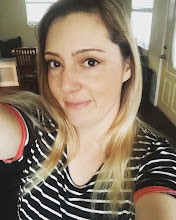Reading the Pedagogy of the Oppressed is as aggravating as it is enlightening. My years teaching children in poverty, immigrant children, minority children makes this text very real and in living color.
In the third chapter, after discussing the role of the teacher as part of the oppressor, Freire discusses the frameworks that teachers work within. To work within a system of oppression as a revolutionary requires critical thought, honest dialogue, and openness to building relationships. It also requires recognition and acknowledgement of the "limit-situations" we find ourselves in. I often tell people that when I worked at Burr Oak and Mather that those kids taught me more than I ever taught them (and I still believe that), and throughout my career there have been moments of profound clarity where the education was more than surface level. But even though those learning experiences happened, it was always accompanied by frustration of limits imposed by people who benefit from the "banking" system. Students pulled from music classes to take "real" subjects, test scores, school accountability, data-driven curriculum. As Freire puts it, "the word is changed into idle chatter" activism without thought (bumper-sticker advocacy), the noise of how we communicate in the modern world.
When I began reading, I related it to my race relations class in the sociology department. I recognized myself as being one of the oppressors--as I benefit from systemic racism and the privilege that accompanies it. As I continued to read, I realized it wasn't as simple as that. The oppressed and oppressors have a relationship dynamic that is maintained by structures, and only with recognition of those structures can the oppressed dismantle them and liberate us all. Therefore I see my role as an educator to provide students with the opportunities to discover this and then assist them when called upon to do so. Education is not the oppression, it is a framework that can be used for oppression OR liberation.
I appreciate the distinction between revolution and coup since so many people conflate the two. Revolution requires dialogue, not brute force. And not recognizing the difference is how so many people who intend to be revolutionary (or "woke" in modern parlance) end up becoming oppressors themselves. I think of Obama's first election, and the hope that people had that he would change things for the better but for many reasons I don't have room to discuss here, he was unable to do those things, and what he was able to accomplish ended up reinforcing oppression (school accountability, health care, and military force). I don't think it was for lack of trying, but because the people he needed to work with were not interested in having the honest dialogue that Friere says is necessary for true liberation.
Subscribe to:
Post Comments (Atom)

No comments:
Post a Comment